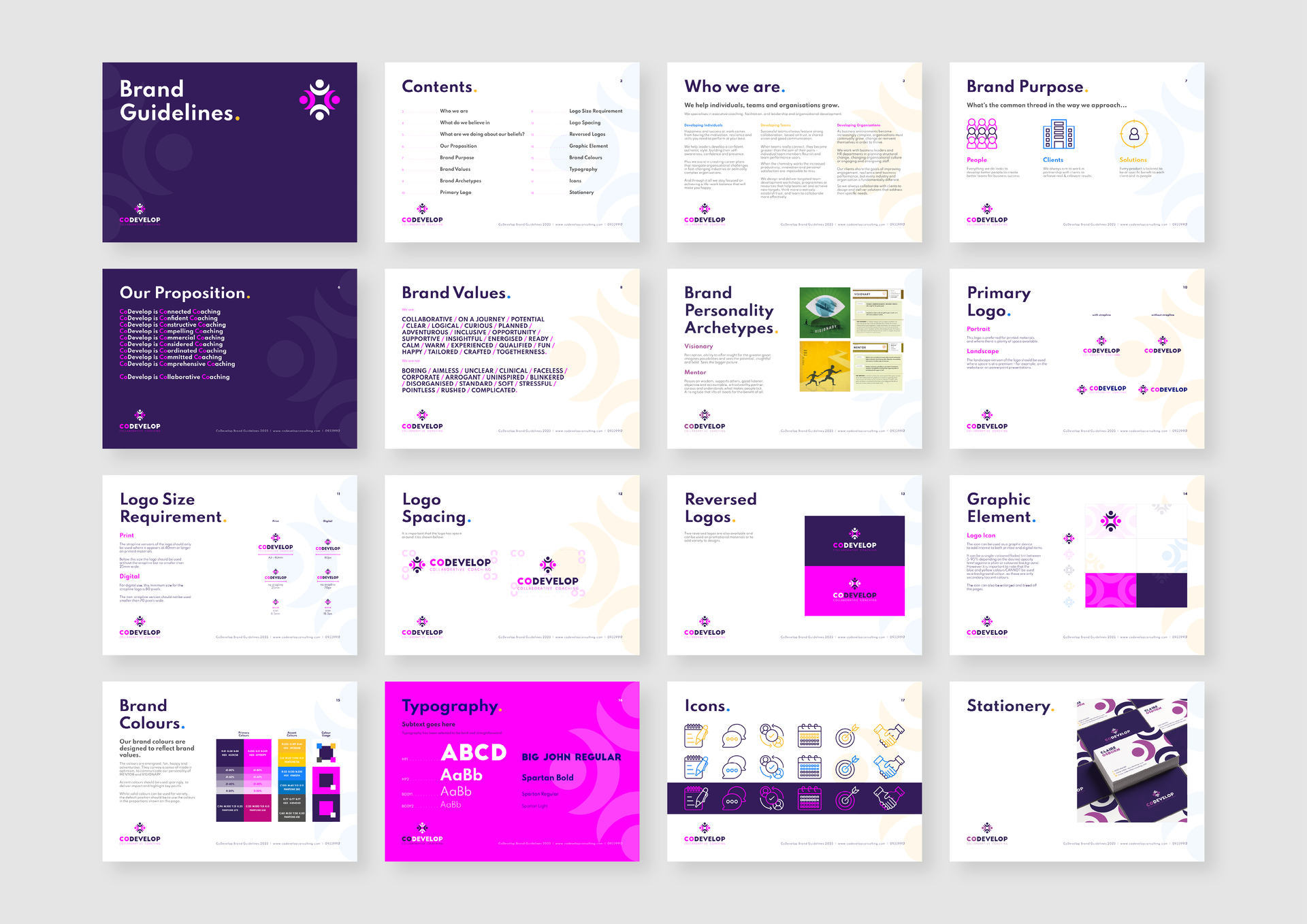Unlocking the ADHD mind: A new scope for CoDevelop
ADHD is a hot topic right now, and likely you’re reading this because either someone you know has it, suspects they have it, or even think this might be you.
While some think it’s a fad, we have firsthand personal experience to know that it is not. ADHD is real and it brings with it very real benefits and very real risks. It also brings a new dimension for leaders and now is the right time to start lean about it. We believe it is essential to understand and tailor your leadership, to support and get the most out of your people who maybe ADHD…. Let’s face it, it’s highly likely they are some of your high achievers, with great vision and energy.
What ADHD is?
Attention Deficit Hyperactivity Disorder (ADHD) is a neurodevelopmental disorder characterised by persistent patterns of inattention, hyperactivity, and impulsivity that interfere with executive functioning and development. It typically begins in childhood and can persist into adulthood. The disorder affects 5% of people living in the UK, roughly around 3.3 million people. ADHD affects individuals in various aspects of their lives, including their professional endeavours. While there has been much research into its impact in the education setting, there has been far less about how it can impact people in the workplace. of the workforce.
How ADHD affects professionals?
In a professional context, ADHD can manifest in several ways that impact work performance:
Difficulty with focus and attention: Individuals with ADHD may struggle to maintain focus on tasks, leading to distractibility and difficulty completing work assignments. They may frequently switch between tasks or have trouble following through on projects.
Impulsivity: Impulsivity can lead to hasty decisions making without considering the consequences, which can result in errors or poor judgment in a professional setting. This may include interrupting others during meetings or acting without thinking through the potential outcomes.
Organisation and Time Management Challenges: ADHD often involves difficulties with organisation and time management. Individuals may struggle with planning and prioritizing tasks, meeting deadlines, and maintaining orderly workspaces.
Communication Issues: ADHD can affect communication skills, leading to challenges in expressing thoughts clearly, listening attentively, and maintaining appropriate social interactions in professional settings.
The positives
All too often talk of ADHD focuses on the challenges, the negatives but ADHD brain brings unique brilliance too and this is why we are so passionate about helping leaders to understand and learn how to work with their ADHDers…
A 2023 Oxford study has shown those with ADHD demonstrate significant strengths compared to those without it in 3 main areas
1. hyper- focus – while we are told that ADHDers can’t focus, the truth is they can, and they do – on the things that really matter. Give them something they believe in to work on, and you will be rewarded with unwavering focus and attention.
2. cognitive flexibility - curiosity and creative problem solving – the ADHD brain has different pathways which means it can find new and different approaches. How many times have you heard about entrepreneurs with an ADHD diagnosis who have used their creativity to bring world new solutions? The names Branson and Bartlett, spring to mind.
3. sensory processing - empathy and compassion. ADHDers are hyper sensing. They feel things differently too which means they can often tune into others in unique and powerful ways
This means those in your team with ADHD will be bringing unique strengths in energising people, are you maximising these ?

The importance of addressing ADHD in the workplace?
The aspects of ADHD mentioned above, both positive and negative, have potential implications on one’s impact as a leader. The introduction of ADHD coaching in the workforce can provide benefits to both employees and managers, allowing those in leadership roles to effectively manage employees with ADHD, not to mention fostering workplace inclusion.
ADHD coaching is an emerging type of coaching for many businesses with various research studies being carried out, highlighting the effectiveness of ADHD coaching in providing benefit to the productivity and work environments of many businesses.
How ADHD coaching can benefit the individuals in your team, for the good of the company?
A basis for individual ADHD coaching:
1:1 ADHD coaching is a specialised form of coaching designed to support individuals with ADHD in managing their symptoms and maximising their potential in various areas of life, including their professional endeavours. Here's how ADHD coaching can benefit someone with ADHD in their professional life:
Identifying Strengths and Challenges: ADHD coaching helps individuals gain a better understanding of their unique strengths and challenges related to ADHD symptoms. This self-awareness is essential for developing effective strategies to navigate professional tasks and responsibilities.
Developing Coping Strategies: ADHD coaches work with clients to develop practical strategies for managing symptoms such as organisation, time management, and prioritisation. These strategies may include implementing structured routines, utilising productivity tools, and breaking tasks into manageable steps.
Improving Executive Functioning Skills: Executive functioning skills, such as planning, problem-solving, and impulse control, are often impaired in individuals with ADHD. ADHD coaching focuses on strengthening these skills to enhance professional performance and decision-making abilities.
Enhancing Communication and Interpersonal Skills: ADHD coaching can help individuals improve their communication and interpersonal skills, including active listening, assertiveness, and conflict resolution. These skills are crucial for effective collaboration and building positive working relationships with colleagues.
Setting and Achieving Goals: ADHD coaching supports individuals in setting realistic goals and developing action plans to achieve them. Coaches provide accountability and encouragement to help clients stay focused and motivated in pursuing their professional aspirations.
How leaders can be supported to work with ADHDers, and help them to fly for the good of the team.
A basis for leadership ADHD coaching:
ADHD coaching, can be used in the context of coaching a manager on how to effectively manage an employee with ADHD, involves providing guidance, strategies, and support to help the manager understand and accommodate the unique needs of their employee. Here's an overview of what ADHD coaching for a manager might entail:
Education and Awareness: The first step in coaching a manager on managing an employee with ADHD is to provide education and raise awareness about the disorder. This includes explaining the characteristics of ADHD, common challenges individuals with ADHD may face in the workplace, and dispelling myths or misconceptions.
Understanding Individual Differences: Each person with ADHD is unique, and coaching emphasises the importance of understanding the specific strengths, weaknesses, and preferences of the employee. This involves recognising how ADHD symptoms may manifest in the workplace and tailoring management approaches accordingly.
Effective Communication Strategies: ADHD coaching teaches managers communication strategies that are conducive to effective interaction with employees with ADHD. This includes providing clear and concise instructions, breaking down complex tasks into manageable steps, and offering frequent feedback and reinforcement. Teaching managers to enforce challenging yet achievable goals is imperative for effective communication. Clear guidelines help reduce ambiguity and provide structure, making it easier for employees to focus and stay on track.
Providing Supportive Environment: Creating a supportive work environment is essential for employees with ADHD to thrive. Coaching helps managers identify ways to minimize distractions, establish routines, and provide accommodations that facilitate productivity and success.
Flexibility and Adaptability: Managers learn to be flexible and adaptable in their management approach to accommodate the fluctuating needs of employees with ADHD. This may involve adjusting deadlines, providing additional support or resources, and being understanding of challenges that arise.
In summary, ADHD coaching offers tailored support and guidance to help individuals with ADHD overcome challenges, leverage their strengths, and thrive in their professional lives. By addressing the unique needs associated with ADHD, coaching empowers individuals to reach their full potential and achieve success in their careers.
Our Director, Claire Osborn is a qualified ADHD Works Coach who would love to support individuals and leaders in your organisation, if you would like to have an initial chat with Claire, please reach out via our 'Contact' page








